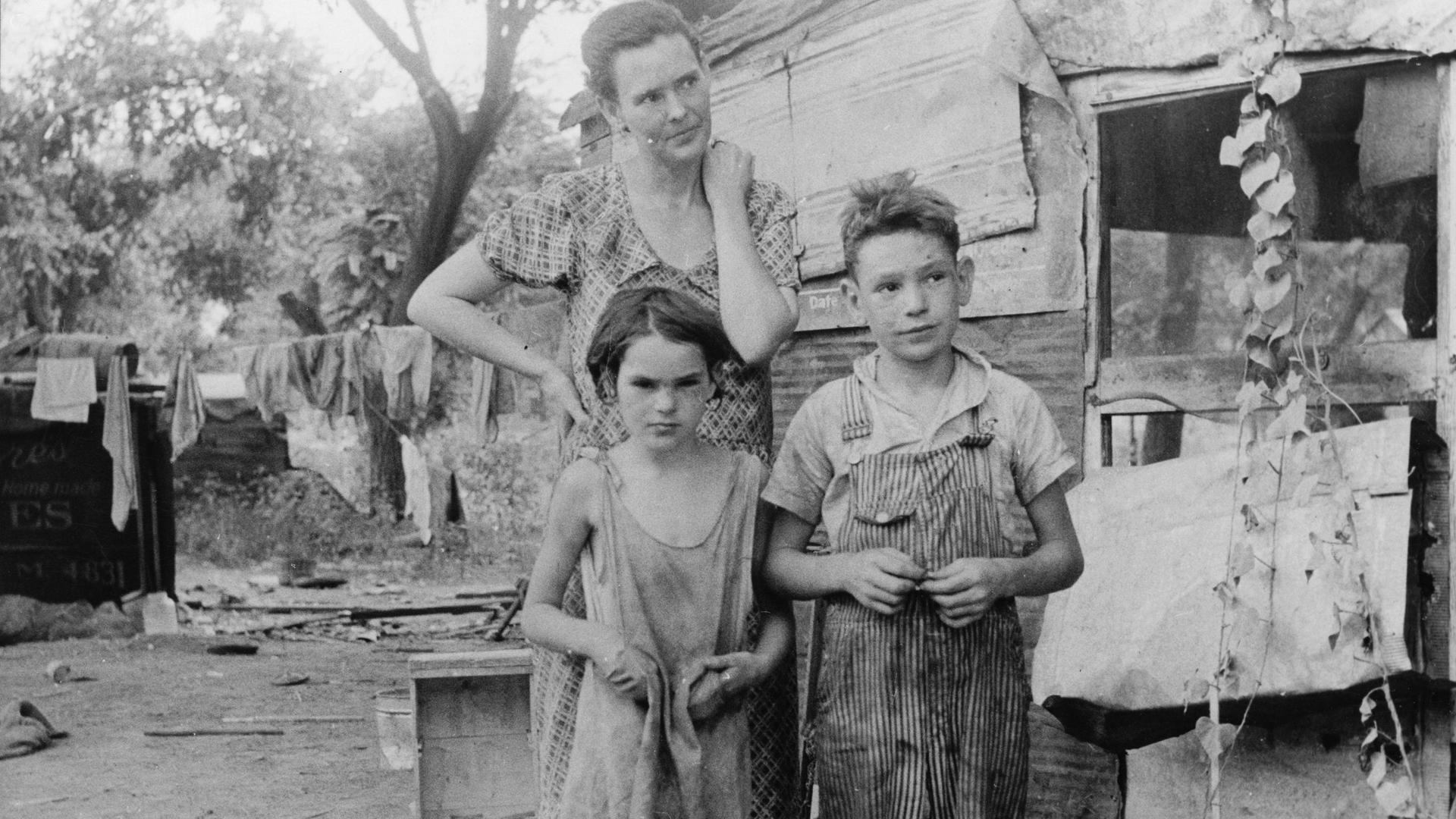The Great Depression pushed millions of Americans into catastrophic poverty. Here, a mother and her shoeless children stand beside their home, a tin shack in Elm Grove, Oklahoma, Aug. 1, 1936.
Many economists are sounding alarm bells over President Donald Trump's apparent push toward protectionism and an all-out retaliatory trade war. They say history is clear: It's a bad idea.
The Great Depression pushed millions of Americans into catastrophic poverty — which lasted for years. Savings were wiped out. Unemployment reached 25 percent, and in an age without public assistance, many depended on charity to simply survive. The hunger and humiliation scarred a generation.
“That’s the historical precedent we are all afraid of,” says Lee Branstetter, professor of economics at Carnegie Mellon University in Pittsburgh.
“In the 1920s and early ‘30s there was a massive movement toward protectionism,” he says. “It didn’t make the Great Depression — there were lots of things going wrong. But the trade war that was begun then definitely made the Great Depression worse. It made the pain greater. It made the employment losses more significant.”
Related: Progressives in Congress side with Trump on trade
After the great stock market crash of October 1929, “lots of people were worried about jobs, and so in this case, two Republican members of Congress, Mr. [Reed] Smoot, and Mr. [Willis] Hawley, introduced a massive hike in tariffs … and that triggered a global trade war.”
More than 1,000 economists signed a petition imploring President Herbert Hoover not to sign Smoot-Hawley into law. Many of Hoover's top advisers and leading US businessmen also begged him not to do so. But Hoover signed it anyway June 17, 1930.
Related: 10 risks facing the world in 2018
Smoot and Hawley believed they were protecting American jobs by imposing tariffs on foreign imports, making them more expensive than American-made goods. But not surprisingly, the rest of the world imposed retaliatory measures, which crippled many US exporters.
US trade with Europe and other parts of the world collapsed by two-thirds.
Related: Trump's threats to pull out of NAFTA threaten many in Arizona
Economists don’t agree on the overall extent of the damage this all caused, but all agree Smoot-Hawley exacerbated the Great Depression.
But there was an upside to the experience. “It was a lesson both Republicans and Democrats took away from this dark part of our history,” Branstetter says. They worked together to shape a new world order “to make sure that our post-war trading system was free and open to international flows of goods and investment. And that has helped bring prosperity not just for the United States, but for the world.”
Until now.
“A lot of us with a sense of history,” says Branstetter, “are very worried that we’re about to take a detour down a road that we haven’t been down in a very long time, and it’s going to be bad for everyone.”
Our coverage reaches millions each week, but only a small fraction of listeners contribute to sustain our program. We still need 224 more people to donate $100 or $10/monthly to unlock our $67,000 match. Will you help us get there today?
